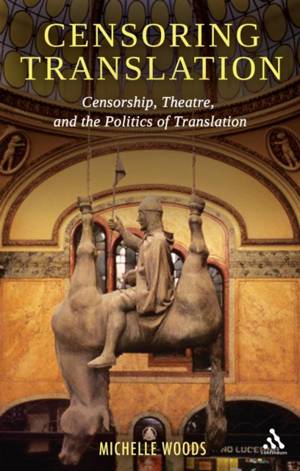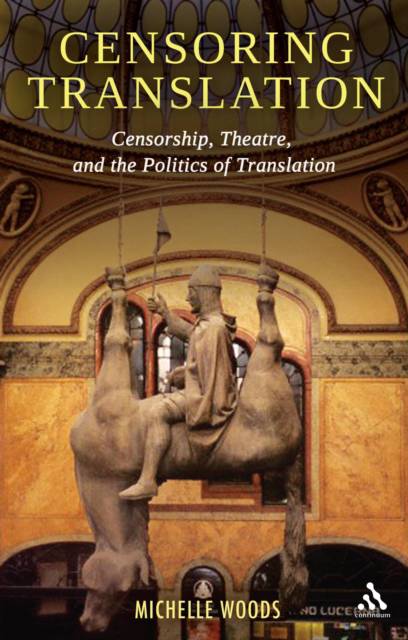
Wil je zeker zijn dat je cadeautjes op tijd onder de kerstboom liggen? Onze winkels ontvangen jou met open armen. Nu met extra openingsuren op zondag!
- Afhalen na 1 uur in een winkel met voorraad
- Gratis thuislevering in België vanaf € 30
- Ruim aanbod met 7 miljoen producten
Wil je zeker zijn dat je cadeautjes op tijd onder de kerstboom liggen? Onze winkels ontvangen jou met open armen. Nu met extra openingsuren op zondag!
- Afhalen na 1 uur in een winkel met voorraad
- Gratis thuislevering in België vanaf € 30
- Ruim aanbod met 7 miljoen producten
Zoeken
Censoring Translation
Censorship, Theatre, and the Politics of Translation
Michelle Woods
Paperback | Engels
€ 81,45
+ 162 punten
Uitvoering
Omschrijving
A play is written, faces censorship and is banned in its native country. There is strong international interest; the play is translated into English, it is adapted, and it is not performed.
Censoring Translation questions the role of textual translation practices in shaping the circulation and reception of foreign censored theatre. It examines three forms of censorship in relation to translation: ideological censorship; gender censorship; and market censorship. This examination of censorship is informed by extensive archival evidence from the previously unseen archives of Václav Havel's main theatre translator, Vera Blackwell, which includes drafts of playscripts, legal negotiations, reviews, interviews, notes and previously unseen correspondence over thirty years with Havel and central figures of the theatre world, such as Kenneth Tynan, Martin Esslin, and Tom Stoppard. Michelle Woods uses this previously unresearched archive to explore broader questions on censorship, asking why texts are translated at a given time, who translates them, how their identity may affect the translation, and how the constituents of success in a target culture may involve elements of censorship.Specificaties
Betrokkenen
- Auteur(s):
- Uitgeverij:
Inhoud
- Aantal bladzijden:
- 200
- Taal:
- Engels
Eigenschappen
- Productcode (EAN):
- 9781441100573
- Verschijningsdatum:
- 10/05/2012
- Uitvoering:
- Paperback
- Formaat:
- Trade paperback (VS)
- Afmetingen:
- 155 mm x 231 mm
- Gewicht:
- 340 g

Alleen bij Standaard Boekhandel
+ 162 punten op je klantenkaart van Standaard Boekhandel
Beoordelingen
We publiceren alleen reviews die voldoen aan de voorwaarden voor reviews. Bekijk onze voorwaarden voor reviews.











